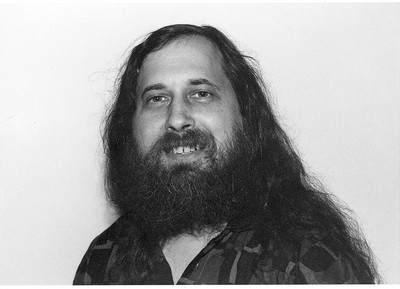 Did you know that Richard Stallman was interviewed by Kim Hill on Saturday? I missed it but ended up listening to the podcast yesterday. It’s pretty interesting listening. He covers a lot of topics including 911 “conspiracy” theories, airport security in the US and why he considers some kinds of electronic surveillance to be deeply disconcerting in terms of the way they put a lot of power into the hands of law enforcement (which the public then has to take on trust will not be exploited). Pretty thought-provoking stuff.
Did you know that Richard Stallman was interviewed by Kim Hill on Saturday? I missed it but ended up listening to the podcast yesterday. It’s pretty interesting listening. He covers a lot of topics including 911 “conspiracy” theories, airport security in the US and why he considers some kinds of electronic surveillance to be deeply disconcerting in terms of the way they put a lot of power into the hands of law enforcement (which the public then has to take on trust will not be exploited). Pretty thought-provoking stuff.
His views are perhaps on the more extreme end of the range to my own but I think the basic principle of his arguments are sound. Kim Hill however seemed quite annoyed with him, repeatedly accusing him of saying things he hadn’t and extrapolating wildly though I suppose it gave him the opportunity to clearly define what his specific view was on several things, but why so grumpy, Kim? Another surprise is that he sounds a bit like Woody Allen (which is something that a fellow librarian pointed out, and I have to agree).
If you’re looking for a little background radio to listen to this afternoon, why not check out the podcast for yourself? It runs to just over 39 minutes and LIANZA Conference gets a mention (yay!). I can’t wait to hear what he says in his keynote address. I wager it’ll generate quite a lot of debate so make sure you get along to that one. You don’t want to miss out on the “watercooler conversation” that’ll go on afterwards.

 Richard Stallman is an interesting guy. Twenty-five years ago he launched the
Richard Stallman is an interesting guy. Twenty-five years ago he launched the 





